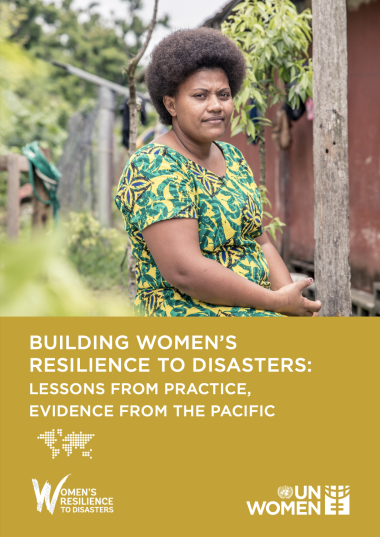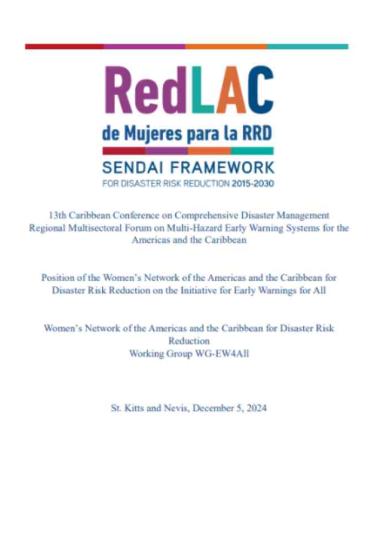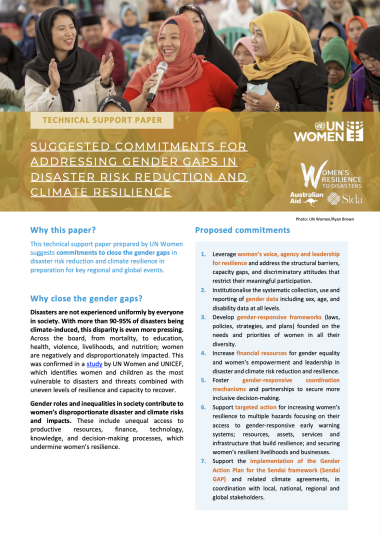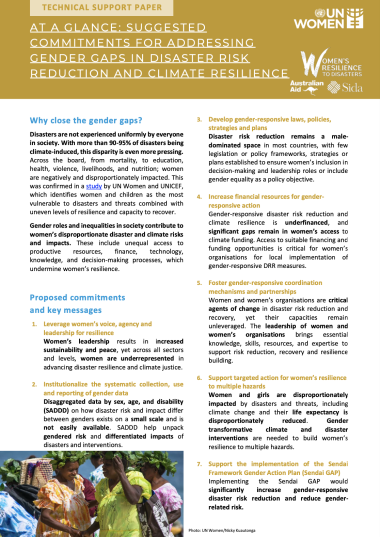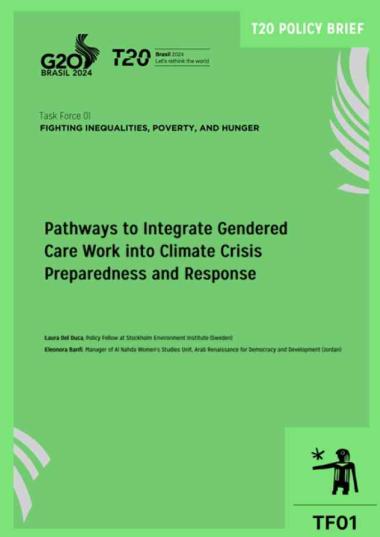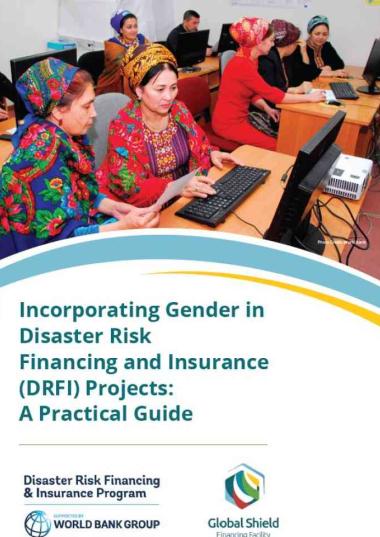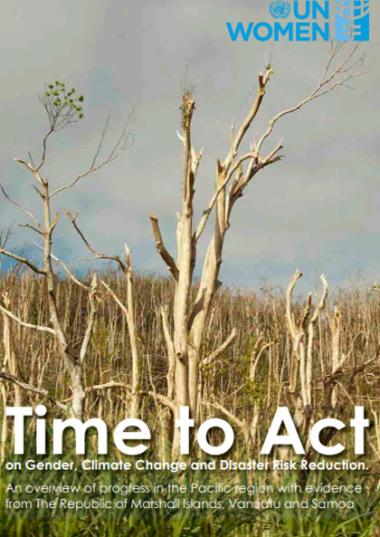
Leaving no one behind
The 2019 edition of the World Water Development Report (WWDR 2019) entitled ‘Leaving No One Behind’ seeks to inform policy and decision-makers, inside and outside the water community, how improvements in water resources management and access to water supply and sanitation services are essential to overcoming poverty and addressing various other social and economic inequities.
The 2019 edition looks at different dimensions of inequality linked to food and nutrition, disasters and migration, drawing on data and information from the UN family and others. For example: if women had the same access as men to productive resources – including land and water, they could increase yields on their farms by 20 to 30%, raising total agricultural output in these countries by 2.5 to 4%. This could reduce the number of hungry people in the world by around 12 to 17%. Further, the overall risk of being displaced by disasters has doubled since the 1970s. The depletion of water and other natural resources is increasingly recognized as a driver of displacement that triggers internal and international migration. The 2019 Report provides evidence of the need to adapt approaches, in both policy and practice, to address the causes of exclusion and inequality. This is key to ensuring the availability and sustainable management of water and sanitation for all.
As the sixth in a series of annual, thematic reports, WWDR 2019 provides insights and guidance in helping identify ‘who’ is being left behind, and describes how existing frameworks and mandates, such as the 2030 Agenda and the SDGs and human rights-based approaches, can help ‘reach the furthest first’, through improved water management. The report assesses the issues and offers potential responses from technical, social, institutional and financial perspectives while taking account of the many different challenges faced in rural and urban settings. With the world witnessing the highest levels of human displacement on record, an entire chapter has been dedicated to the exceptional challenges faced by refugees and forcibly displaced people with respect to water and sanitation.
